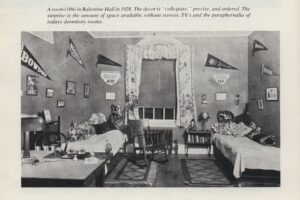Dr. William Farrell is a professor at the School of Policy and International Affairs and has been working with the University of Maine since 2013. Having earned his doctorate from UMaine, he specializes in working with countering violent extremism and conflict. Farrell is also the principal consultant for the Maine-based firm Swordfish Consulting International.
“[His team] works globally on situation analysis, strategy formulation, impact articulation, and influence mapping in fragile and transitional countries,” Farrell said.
Before coming to UMaine, Farrell worked in many high-level positions in which he was able to be part of the international process firsthand. He was a vice president at Mercy Corps for 10 years, working in various capacities with them. Prior to this he worked for the U.S. Agency for International Development’s Central Asia Republics Mission and additionally worked in support of their emergency response in Sudan. However, when asked what he most enjoyed working on, Farrell spoke about his work on brokering a peace deal between the Republic of Georgiaand its breakaway region of South Ossetia.
South Ossetia is a region roughly the size of Delaware located in the north-central part of the Republic of Georgia. They wanted to separate from Georgia and unite with North Ossetia across the Russian border. After a year and a half of war from January of 1991 to June of 1992, a cease-fire was reached but no progress had been made as to determining South Ossetia’s status. The Organization for Security and Cooperation in Europe was called in to help facilitate negotiations and a peace deal between Georgia and South Ossetia as well as Russian peacekeepers, to which Farrell was seconded by the U.S. Department of State for his expertise in the region.
While working on this peace process, Farrell split his time living in Tbilisi, the capital of Georgia, and Tskhinvali, the capital of South Ossetia.He was working in high-level negotiations between the two countries, while also working with the Russian soldiers stationed in South Ossetia to help keep the peace and prevent conflict from flaring up again.
It comes as no surprise that Farrell is currently teaching an undergraduate course focusing on Central Asia and the South Caucasus, as well as a course on terrorism and its various causes. Alongside these two undergraduate classes, he also teaches two at the graduate level. Beyond his academic time, he is also managing his consulting firm full time. Whenever he is hired to travel abroad, he keeps his classes going through Zoom or by recording lectures for his students to review.
Having a distinct and noticeable passion for his work helps him to be efficient and effective. Farrell also takes note of how teaching helps him with his consulting work.
“There’s a value [in] understanding academic aspects and conveying it to other people. How does it boil down into one point?” Farrell said.
Farrell’s undergraduate courses are few and far between — the last time he taught one was in 2013, when he first started working at UMaine. His courses on terrorism and the Central Asia/South Caucasus regions are an interesting dive into topics that many people have at heard of but aren’t really familiar with.
As a final thought, Farrell touched on the importance of keeping an international worldview when looking at different political perspectives.
“[I]t’s valuable to look inwards, but we also need to look outside the US.”









